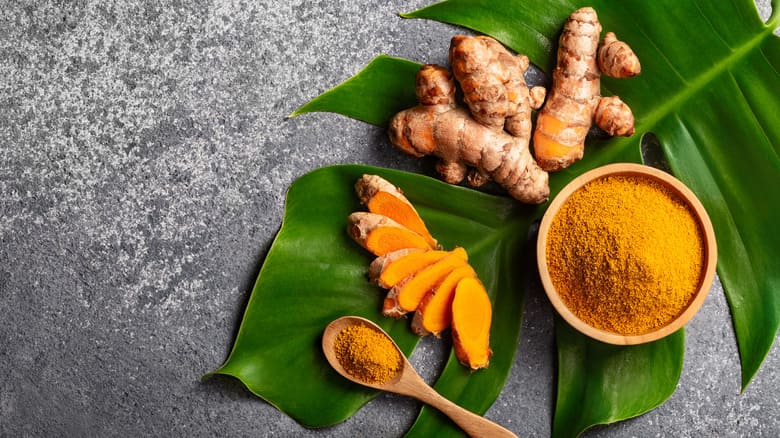Turmeric Health Benefits Science Backed

Walking through the aisles of a grocery store, you might have come across a golden-yellow spice and wondered about its place in the culinary world. But did you know this vibrant and somewhat earthy spice is not just a kitchen staple but also a treasure trove of health benefits? That’s right, we’re talking about turmeric. Turmeric has been hailed since ancient times for its potential medicinal properties and has made its way into the modern wellness lexicon with a bang. But what’s all the fuss really about? Let’s delve deep into the health benefits of turmeric and understand why it has earned such high praises.
What is Turmeric?
Before diving into the health benefits, let’s get to know our star player a little better. Turmeric, scientifically known as Curcuma longa, is a flowering plant that belongs to the ginger family. It is native to Southeast Asia, and its root is commonly used in cooking. The bright yellow powder often found in spice racks is derived from this root.
The primary active component of turmeric is curcumin. Curcumin is not only what gives turmeric its characteristic yellow color but is also responsible for most of its health benefits. However, raw turmeric root also contains a host of other compounds that contribute to its overall potency.
Powerful Anti-Inflammatory Properties
One of the most well-known benefits of turmeric is its anti-inflammatory properties, making it a go-to remedy for various ailments.
How It Works
Inflammation is your body’s natural response to injury or infection, but chronic inflammation can lead to a host of health problems, including heart disease, cancer, and Alzheimer’s. Curcumin, the active compound in turmeric, is known to inhibit several molecules that play significant roles in inflammation.
“Turmeric is one of the most potent natural anti-inflammatories available.”
Real-Life Applications
-
Joint Pain and Arthritis: Many people with arthritis find relief by incorporating turmeric into their diets or taking turmeric supplements. Studies have shown that curcumin can be just as effective as some anti-inflammatory drugs.
-
Digestive Disorders: Conditions like irritable bowel syndrome (IBS) and inflammatory bowel disease (IBD) can cause significant inflammation in the digestive tract. Turmeric has been found to reduce symptoms and flare-ups in these conditions.
-
Skin Conditions: Conditions such as eczema and psoriasis involve inflammation of the skin. Applying turmeric as a paste or consuming it can help alleviate these inflammatory symptoms.
Antioxidant Powerhouse
Free radicals are unstable molecules that can damage cells, leading to aging and various diseases. Antioxidants neutralize these free radicals, protecting our cells from damage.
The Role of Curcumin
Curcumin happens to be a powerful antioxidant. But that’s not all; it also boosts the activity of your body’s own antioxidant enzymes.
-
Cellular Health: By reducing oxidative stress, turmeric helps in maintaining cellular integrity.
-
Anti-Aging: Increased intake of antioxidants like curcumin may slow down the aging process and fight age-related diseases.
Heart Health
Heart disease remains one of the leading causes of death worldwide, so anything that can help protect your heart is worth exploring.
Mechanisms Involved
Turmeric improves the function of the endothelium, which is the lining of your blood vessels. Endothelial dysfunction is a major driver of heart disease and involves an inability to regulate blood pressure, blood clotting, and various other factors.
-
Lower Risk of Heart Attacks: Curcumin has shown to reduce several factors that contribute to heart disease, such as inflammation and oxidation.
-
Lowers Cholesterol: Studies suggest that turmeric may help reduce levels of LDL (bad cholesterol) while increasing HDL (good cholesterol).
Brain Health
Cognitive decline is a significant fear for many as they age. The good news is that turmeric may offer some protection against this.
Turmeric and Neuroprotection
Curcumin crosses the blood-brain barrier, which means it can directly affect brain structures and functions. Several studies highlight its role in increasing brain-derived neurotrophic factor (BDNF), which is a type of growth hormone crucial for brain function.
-
Reduced Risk of Neurodegenerative Diseases: Regular consumption of turmeric may lower the risk of conditions like Alzheimer’s by reducing amyloid plaques and neuroinflammation.
-
Improves Memory: Some studies suggest that turmeric can help improve memory and attention, even in otherwise healthy individuals.
Better Digestive Health
Turmeric is often heralded for its digestive health benefits, and for a good reason. Its anti-inflammatory and antioxidant properties can significantly impact digestive processes.

Digestive Disorders
-
Irritable Bowel Syndrome (IBS): People with IBS may find relief from symptoms by incorporating turmeric into their diets.
-
Ulcerative Colitis and Crohn’s Disease: Turmeric has been shown to reduce flare-ups and extend remission periods in those suffering from these inflammatory bowel conditions.
-
Digestive Efficiency: Turmeric stimulates bile production, which in turn helps in the efficient digestion of fats.
Skin Benefits
Beyond internal health, turmeric also offers a range of benefits for your skin, making it a popular ingredient in beauty products.
Turmeric in Skincare
-
Anti-Aging: Due to its antioxidant properties, turmeric can fight oxidative damage and improve skin elasticity.
-
Acne Control: Its anti-inflammatory qualities help in reducing acne flare-ups and even out skin tone.
-
Wound Healing: Curcumin has been found to speed up the healing of wounds by decreasing inflammation and oxidation. It also reduces your body’s response to skin wounds, leading to quicker healing.
Weight Management

Achieving or maintaining a healthy weight is a complex issue that involves multiple factors. Interestingly, turmeric can also play a crucial role in weight management.
Mechanisms of Action
The anti-inflammatory and antioxidant properties of curcumin may prevent obesity-related complications and promote weight loss through various mechanisms.
-
Regulation of Adipokines: These are a type of cell signaling proteins that play an essential role in metabolism. Curcumin helps regulate them, improving metabolism and reducing weight gain.
-
Enhanced Fat Burning: Curcumin improves the process by which fat is converted into energy, thus aiding in weight loss.
-
Improves Insulin Sensitivity: By helping improve how your body responds to insulin, turmeric can help manage and prevent type 2 diabetes, which is often associated with obesity.
Detoxification
In a world filled with pollutants and toxins, finding ways to help your body detoxify naturally can be incredibly beneficial, and turmeric can contribute significantly to this.
How Turmeric Assists Detoxification
-
Liver Function: Curcumin supports liver function by protecting it against damage and improving its ability to detoxify the body.
-
Natural Diuretic: Turmeric can act as a natural diuretic, helping to flush out toxins and reduce water retention.
-
Antimicrobial Properties: Turmeric’s antimicrobial properties can help cleanse the gut and fight harmful bacteria, improving overall health.
How to Incorporate Turmeric into Your Diet
After delving into these myriad health benefits, you might be wondering how to get more of this golden spice into your daily routine. Here are some practical tips and ideas:
Culinary Uses
-
Golden Milk (Turmeric Latte): A popular way to consume turmeric is by making golden milk. This warm, comforting beverage combines turmeric with milk (or a milk substitute) and other spices like black pepper and ginger.
-
Spice Up Your Dishes: Turmeric can be added to a variety of dishes, from soups and stews to stir-fries and roasted vegetables.
-
Smoothies: A small amount of turmeric can be blended into smoothies for an extra health kick.
Supplements
For those who may not enjoy the taste of turmeric, supplements are available. It’s essential to choose one with good bioavailability, as curcumin alone isn’t easily absorbed by the body. Many supplements are combined with black pepper extract (piperine) to enhance absorption.
Topical Applications
If you’re focusing on skin benefits, look for skincare products containing turmeric or make your own at home. A simple paste made from turmeric powder and water can work wonders as a facial mask.
Conclusion: The Golden Touch
Turmeric is much more than just a culinary spice; it’s a powerful natural remedy that has been trusted for centuries. From reducing inflammation and boosting brain function to aiding in weight management and enhancing skin health, turmeric’s benefits are well-supported by both ancient wisdom and modern science.
So, the next time you see that little jar of golden powder on the spice rack, remember it’s not just a flavoring but a plethora of health benefits waiting to be explored. Whether you’re stirring it into your favorite dishes or taking it as a supplement, turmeric can be a valuable addition to your wellness routine.
“Health is not just about the absence of disease. It’s about feeling vibrant, energetic, and alive. And little things, like adding turmeric to your routine, can go a long way in achieving that.”
Feel free to ask your healthcare provider about the best way to incorporate turmeric into your diet, especially if you have specific health conditions or are on medications. Your journey to better health might just be one golden spoonful away.